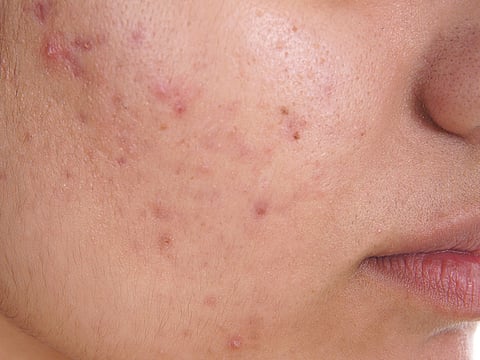'I'm plagued by pigmentation on my face'
I was very excited when I read that I might get some help to fix hypo pigmentation on my face

A reader asks: I was very excited when I read that I might get some help to fix hypo pigmentation on my face. I’ve had this problem for the last four years. I have been to a skin specialist in Auckland and once tried nitrogen burn on couple of places. I believe this has aggravated the problem. Another tried laser on a small area of the face and that has left a pigmentation mark. They also said it might take some time to get back to normal skin, but instead it is getting worse after four years of waiting.
Doctor, I have tried various fading products, which work but pigmentation goes dark again once I stop using it. I would like to fix the pigmentation from inside the body rather than just applying many products on my face. I would really appreciate if I could get any help, including alternative medicines such as Ayurveda, Homeopathy or Unani.
Dr. Mathew Thomas, Specialist Dermatologist at Aster Medical Centre in Sharjah, replies:
Dear reader, even though you have mentioned that your problem is hypopigmentation (diminished pigmentation of skin), the various treatments that you have undergone are for hyperpigmentation (increase in the natural colour of skin). So I assume that your concern is hyperpigmentation.
Management of hyperpigmentation on your face depends on various factors like age, sex, complexion, ethnicity, associated systemic conditions, lifestyle, obstetric and gynecological history, drug history, etc. Unfortunately, none of these are mentioned in your question.
Pigmentation is related to endogenous (hormones) and exogenous factors (such as use of cosmetics and perfumes, and exposure to sun radiation). Melasma (chloasma) is the most common cause of facial pigmentation, but there are many other forms of hyperpigmentations. The description of your problem best matches with the diagnosis of melasma. It is more commonly seen in middle aged women and rarely in men.
The cause of Melasma is complicated. There is a genetic predisposition to this condition. In most people, it is a chronic disorder. There are several known triggers for Melasma, such as sun exposure, pregnancy, hormone treatments and oral contraceptive pills, phototoxic reaction to certain medications.
More commonly, it arises in apparently healthy, normal and non-pregnant adults, persisting for decades. The disease can be very slow to respond to treatment, so patience is necessary. Start gently, especially if you have sensitive skin. Harsh treatments may result in an irritant contact dermatitis, and this can result in post-inflammatory hyperpigmentation. The aim of the treatment is to prevent new pigment formation by inhibiting formation of melanin by the melanocytes.
Generally a combination of the following measures is helpful, such as to discontinue hormonal contraception, use year round sun protection, use a mild cleanser, and don’t use a lot of make- up. The results take time and the above measures are rarely completely successful. About 30 per cent of patients can achieve complete clearance with some prescription medicines.
Since I am an Allopathic doctor specialized in dermatology, I cannot comment on other treatment modalities like Ayurveda, Homeopathy or Unani.
Disclaimer: This blog is a conversation and is not an alternative for treatment. The recommendations and suggestions offered by our panel of doctors are their own and Gulf News will not take any responsibility for the advice they provide.



